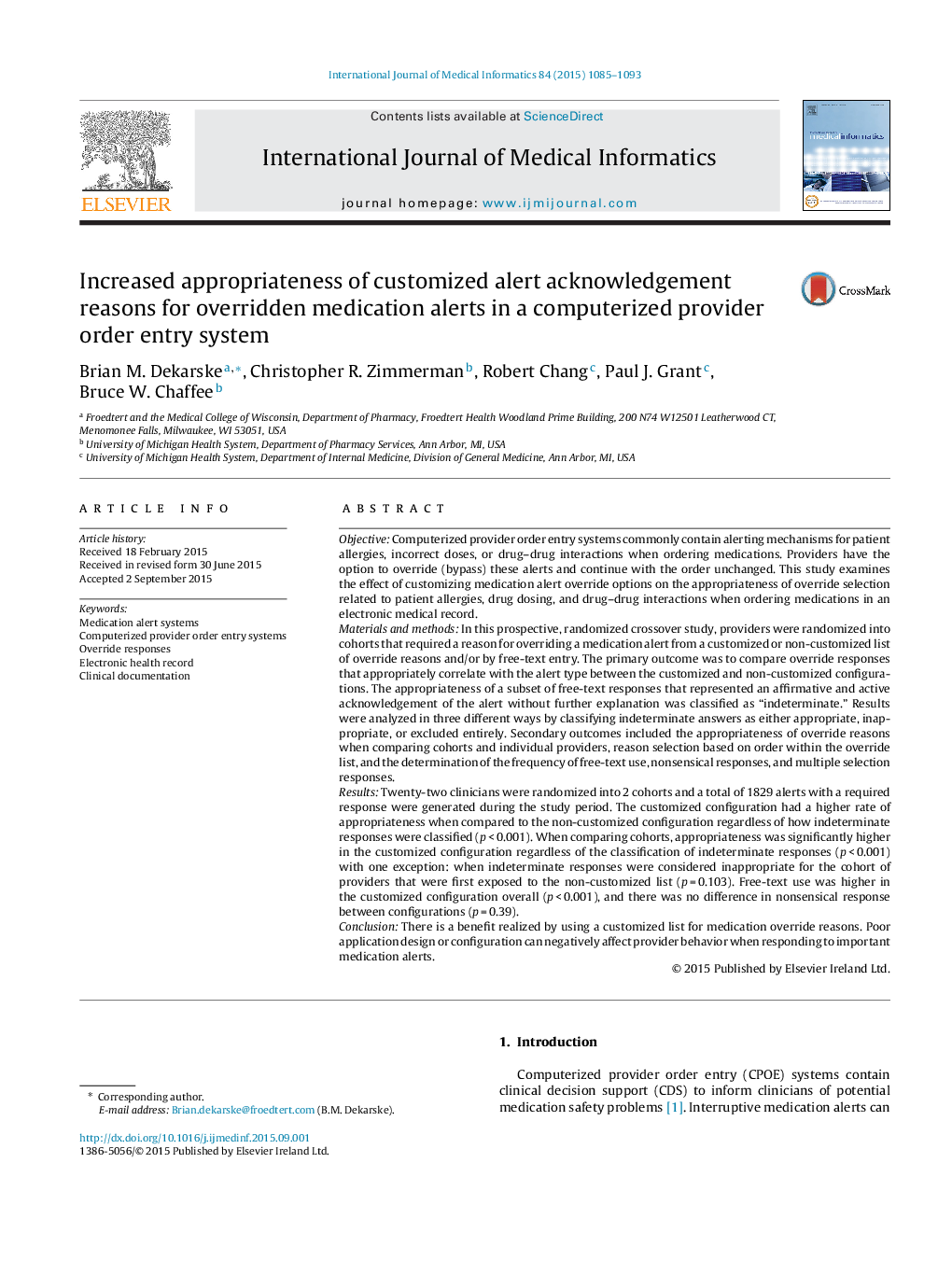| کد مقاله | کد نشریه | سال انتشار | مقاله انگلیسی | نسخه تمام متن |
|---|---|---|---|---|
| 516797 | 1449104 | 2015 | 9 صفحه PDF | دانلود رایگان |
• Many EHRs allow documentation of why a medication alert is bypassed or overridden.
• Providers can document override reasons via predetermined lists and/or use free-text entry.
• We examine the effect of customizing the list of medication alert override responses.
• There is a benefit realized using customized lists for alert override reasons.
• Poor system design or configuration can negatively impact override responses.
ObjectiveComputerized provider order entry systems commonly contain alerting mechanisms for patient allergies, incorrect doses, or drug–drug interactions when ordering medications. Providers have the option to override (bypass) these alerts and continue with the order unchanged. This study examines the effect of customizing medication alert override options on the appropriateness of override selection related to patient allergies, drug dosing, and drug–drug interactions when ordering medications in an electronic medical record.Materials and methodsIn this prospective, randomized crossover study, providers were randomized into cohorts that required a reason for overriding a medication alert from a customized or non-customized list of override reasons and/or by free-text entry. The primary outcome was to compare override responses that appropriately correlate with the alert type between the customized and non-customized configurations. The appropriateness of a subset of free-text responses that represented an affirmative and active acknowledgement of the alert without further explanation was classified as “indeterminate.” Results were analyzed in three different ways by classifying indeterminate answers as either appropriate, inappropriate, or excluded entirely. Secondary outcomes included the appropriateness of override reasons when comparing cohorts and individual providers, reason selection based on order within the override list, and the determination of the frequency of free-text use, nonsensical responses, and multiple selection responses.ResultsTwenty-two clinicians were randomized into 2 cohorts and a total of 1829 alerts with a required response were generated during the study period. The customized configuration had a higher rate of appropriateness when compared to the non-customized configuration regardless of how indeterminate responses were classified (p < 0.001). When comparing cohorts, appropriateness was significantly higher in the customized configuration regardless of the classification of indeterminate responses (p < 0.001) with one exception: when indeterminate responses were considered inappropriate for the cohort of providers that were first exposed to the non-customized list (p = 0.103). Free-text use was higher in the customized configuration overall (p < 0.001), and there was no difference in nonsensical response between configurations (p = 0.39).ConclusionThere is a benefit realized by using a customized list for medication override reasons. Poor application design or configuration can negatively affect provider behavior when responding to important medication alerts.
Journal: International Journal of Medical Informatics - Volume 84, Issue 12, December 2015, Pages 1085–1093
